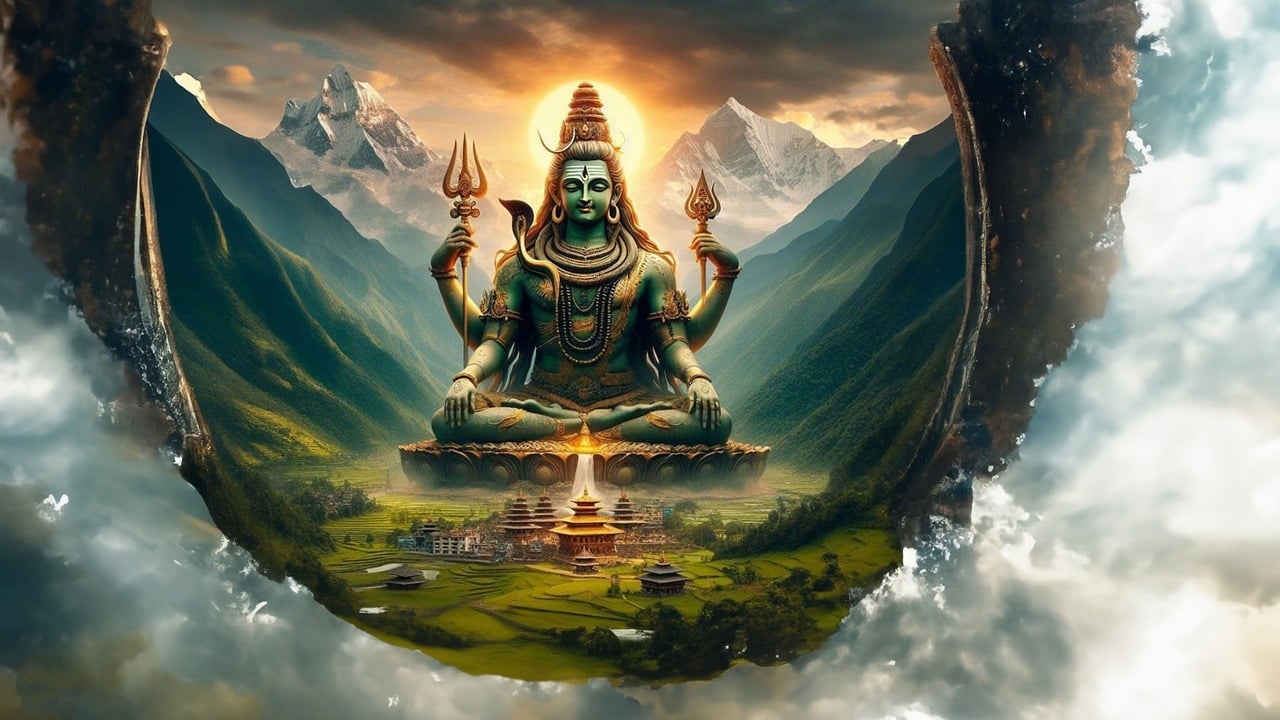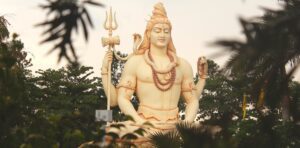Can we chant Maha Mrityunjaya Mantra during periods?
The Mahamrityunjaya Mantra is one of the most powerful and revered mantras in Hinduism, gifted to humanity by Lord Shiva and Rishi Markandeya. But can women recite this sacred mantra during their menstrual cycle?
Power of Maha Mrityunjaya Mantra
ॐ नमः शिवाय रुद्राय शर्वाय मृत्युंजयाय अपेतते अपास्मते अविधवाय सर्वेश्वराय महादेवाय ॥
Death himself is under his control, thus he is established as Mrityunjaya. Salutations to the glorious Lord Rudra.
महादेवस्य मन्त्रेण त्र्यम्बकस्य महात्मनः।
मृत्युञ्जयेन रक्षिष्ये आत्मानं सर्वतोऽमृतात्॥
By constantly reciting the king of mantras, the Mahamrityunjaya, one will not experience untimely death, disease, or suffering.
मृत्युञ्जयं मन्त्रराजं सदा पठन विन्दते।
न तस्य जायते मृत्युर्न च रोगो न पीडनम्॥
I bow to the Gayatri Maa, the ruler of Yajna, The mother of the Vedas, the embodiment of Dharma (righteousness), and the crusher of ignorance.
The Mahamrityunjaya Mantra is often regarded as one of the most potent mantras in Hinduism. It is dedicated to Lord Shiva, seeking his protection and blessings for healing and liberation. The mantra is believed to possess immense spiritual energy that can ward off negative influences and bestow long life, peace, and spiritual growth.
Menstruation Misconceptions
The menstruation cycle has been the subject of numerous misconceptions and taboos. Often, women wonder whether they can recite mantras during their period without facing spiritual repercussions. It’s crucial to dispel the misconception that menstruation is inherently impure in Hinduism. While certain practices may restrict women during their menstrual cycle, these are societal norms rather than religious injunctions. Our scriptures do not categorize menstruation as inherently impure or sinful.
Scriptural Perspective
नारी त्वं श्रद्धया युक्ता स्नात्वा नित्यं जपेत् पुनः।
मन्त्राणां शक्तिरित्येव न स्पृशेद्दोषकं कदा॥
A woman, endowed with faith, should always recite mantras after bathing, for the power of mantras is such that no impurity can ever touch it.
नास्ति सुतका स्त्रीणां रजस्वलानां च भक्तितः।
भक्त्या परमया युक्ता यदा यत्राभ्युपस्थिताः॥
There is no impurity in women due to childbirth or menstruation when they are filled with devotion. Wherever and whenever they are present with supreme devotion, they are pure.
भक्त्या संप्रवृत्यैव नारीणां नैव दूषणम्।
रजःकालमपि प्राप्य सदा पूज्यन्ति तत्पराः॥
Women devoted to worship have no impurity, even during their menstrual periods. They are always worthy of reverence.
न स्त्रीणां रजसा दोषो न मरणेन जायते।
भक्त्या परमया युक्ता यदा यत्राभ्युपस्थिताः॥
There is no fault in women due to menstruation or death. They are pure whenever they are filled with supreme devotion.
In Hindu scriptures, particularly the Vedas and Upanishads, menstruation is not deemed as spiritually polluting. Instead, the emphasis is on inner purity attained through righteous conduct and spiritual practices. However, there are specific guidelines regarding mantra recitation during menstruation, especially for those engaged in intense sadhana or spiritual practices.
Mantra Recitation During Menstruation
Advanced Sadhakas
For individuals who have attained a higher state of sadhana or spiritual realization, menstruation does not hinder their spiritual practices, including mantra recitation. This level of spiritual attainment is rare, and only advanced practitioners can continue their practices seamlessly during menstruation.
Common Practitioners
Common practitioners, who haven’t reached such elevated states of spiritual advancement, are advised to refrain from mantra recitation in temples or sacred spaces during menstruation. This recommendation stems from the belief that menstrual blood represents the creative energy of the divine mother and is highly potent. Hence, it’s essential to avoid mingling this energy with sacred rituals performed in temples.
Mantra Diksha
If an individual has received mantra diksha (initiation) from a guru, they are permitted to continue their mantra recitation during menstruation with the guru’s permission. Mantra diksha signifies a spiritual bond between the disciple and the guru, empowering the disciple to perform spiritual practices under the guru’s guidance.
Without Mantra Diksha
If one has not received mantra diksha, they can still recite mantras during menstruation but are advised to do so in a relaxed setting outside the pooja room or temple. Sitting in a comfortable space, free from distractions, one can engage in mantra japa (repetition) as a form of personal spiritual practice.
Embracing Inner Purity and Devotion
सुखं दुःखं समं कृत्वा लाभाल लाभं समं ज्ञात्वा मान अपमानं समं दृष्ट्वा सन्न्यासं तं विदुः ॥
He who sees with equanimity pleasure and pain, gain and loss, praise and blame, cold and heat, honor and dishonor – who is the same everywhere, who is devoted, possessed of self-control, firm in mind – that one is dear to Me.
Ultimately, the essence of Hindu spirituality lies in inner purity, devotion, and the pursuit of self-realization, transcending external rituals and taboos. While societal norms have often placed restrictions on women during their menstrual cycle, it is essential to understand that these do not reflect the core spiritual teachings of Hinduism. By approaching mantra recitation with reverence, mindfulness, and understanding, individuals can navigate their spiritual journey with grace and wisdom, honoring the divine within and without.
Remember, the Mahamrityunjaya Mantra is a powerful gift from Lord Shiva and Rishi Markandeya, intended for the well-being of all humanity. Whether you choose to chant it during menstruation or at other times, its power will continue to offer protection, healing, and spiritual growth.










Shivashtakam